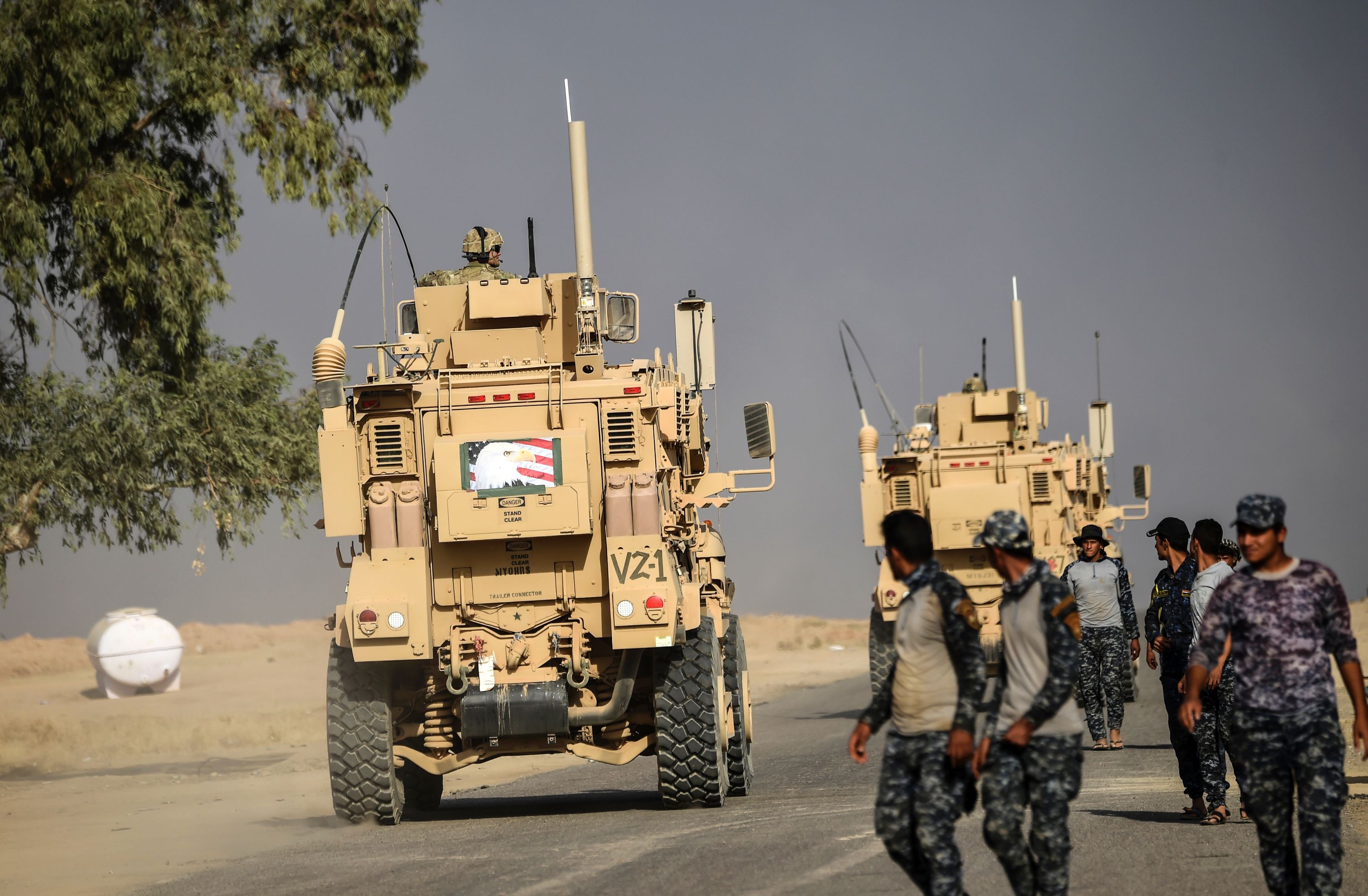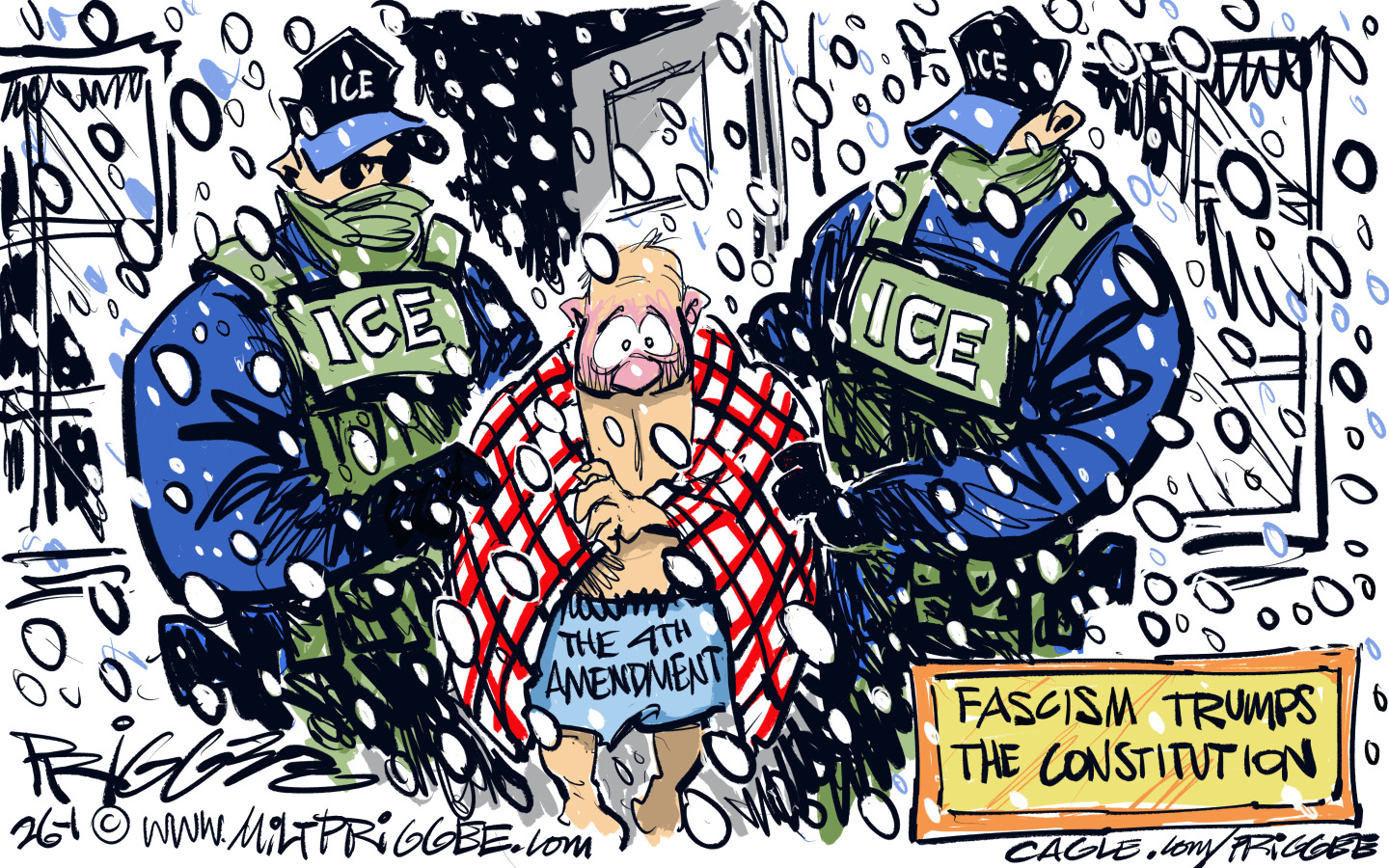Why won't anyone admit that America is fighting 5 wars?
The shameful conspiracy of silence around America's many wars


In an election flush with conspiracy theories, here's one that's real: Both major party nominees, as well as the journalists who cover the election and moderate the debates, are actively conspiring to avoid talking about the fact that the United States is waging war in at least five countries simultaneously: Iraq, Syria, Yemen, Libya, and Somalia.
In the first two presidential debates, our involvement in the Syrian civil war was briefly discussed, as was ISIS in vague terms, and the Iran nuclear deal, and Russia's mischief-making in Eastern Europe and the Middle East, and Libya, though mostly in the past tense, focused on our 2011 intervention to depose Moammar Gadhafi and the subsequent attack on American government facilities in Benghazi a year later.
But our role in "advising" the Iraqi army "a few miles behind the front lines" as it works to take back territory from ISIS? Our "secret war" against Shabab militants in Somalia? Our support for Saudi Arabia's bloody assault on Houthi rebels in Yemen? Our air strikes pounding positions in and around the city of Sirte on the Libyan coast?
The Week
Escape your echo chamber. Get the facts behind the news, plus analysis from multiple perspectives.

Sign up for The Week's Free Newsletters
From our morning news briefing to a weekly Good News Newsletter, get the best of The Week delivered directly to your inbox.
From our morning news briefing to a weekly Good News Newsletter, get the best of The Week delivered directly to your inbox.
Nada. Zip. Nothing.
And everyone involved has powerful reasons to encourage this conspiracy of silence — in tonight's final presidential debate, and beyond.
Republicans have an incentive to avoid a conversation about our multiple wars because the GOP finds it more politically advantageous to portray Barack Obama as a feckless commander in chief who has made the country less safe through grandiloquent displays of spinelessness. To put our wars on the table for discussion and debate would expose the actual truth, which is that Obama has very much governed as a hawk (albeit one who, unlike Republicans, prefers not to brag about it).
Democrats, on the other hand, have several reasons of their own to avoid a conversation about our multiple wars. First, because they quite understandably fear that the American people might object if they realized the Democratic administration was meddling militarily in so many places. Second, because the results of and strategic goals at stake in these interventions are so consistently muddled. Third, because it would reveal that Democrats are closely following the foreign policy vision of their nemesis George W. Bush.
A free daily email with the biggest news stories of the day – and the best features from TheWeek.com
Members of Congress, meanwhile, prefer to avoid making a fuss about our extensive military adventures — all of which are apparently covered by the comically broad Authorization for Use of Military Force Against Terrorists passed just after the 9/11 attacks — because their silence shields them from having to take partial responsibility for the consequences of the president's actions. Better to shirk Congress' constitutional obligations than risk having to take part of the blame if something goes wrong.
And finally and most troublingly, the press has an incentive to avoid a discussion of our actions in places like Somalia and Yemen because the details are extraordinarily complicated — and journalists have no faith in their own ability to explain the necessary historical and geopolitical background to each conflict in a way that will keep an audience engaged, or faith in the American people to process and evaluate that information in a responsible way.
Are they wrong? This is, after all, an election that's rarely risen above the level of hyperbolic sloganeering, shrill denunciation, and outright sleaze-mongering. Donald "Disaster!" Trump certainly deserves a lion's share of the blame for this. But members of the ratings-hungry and click-greedy press are far from innocent. It's supposed to be their job to keep the election from becoming a circus and to ensure that the conversation remains focused on reality, even when that reality is maddeningly complex.
In failing to do so — in allowing Trump to get away with ignorant ranting, and Hillary Clinton to avoid having to defend or criticize President Obama's profligate deployment of military force across wide swaths of the globe — the press actively contributes to making our politics stupider. Instead of enlightening members of the general public, it entertains them. And so the wars drag on and multiply, fought by an all-volunteer army thousands of miles away, barely touching the lives and thoughts of the vast majority of voters.
In a political season in which the media has come in for unprecedented hostility and abuse, this is its greatest, and least appreciated, shortcoming: When everybody else decided it was a good idea to forestall a public debate about enormously important and complicated policy questions, the press decided to go along and let it happen.
Damon Linker is a senior correspondent at TheWeek.com. He is also a former contributing editor at The New Republic and the author of The Theocons and The Religious Test.
-
 31 political cartoons for January 2026
31 political cartoons for January 2026Cartoons Editorial cartoonists take on Donald Trump, ICE, the World Economic Forum in Davos, Greenland and more
-
 Political cartoons for January 31
Political cartoons for January 31Cartoons Saturday's political cartoons include congressional spin, Obamacare subsidies, and more
-
 Syria’s Kurds: abandoned by their US ally
Syria’s Kurds: abandoned by their US allyTalking Point Ahmed al-Sharaa’s lightning offensive against Syrian Kurdistan belies his promise to respect the country’s ethnic minorities
-
 The billionaires’ wealth tax: a catastrophe for California?
The billionaires’ wealth tax: a catastrophe for California?Talking Point Peter Thiel and Larry Page preparing to change state residency
-
 Bari Weiss’ ‘60 Minutes’ scandal is about more than one report
Bari Weiss’ ‘60 Minutes’ scandal is about more than one reportIN THE SPOTLIGHT By blocking an approved segment on a controversial prison holding US deportees in El Salvador, the editor-in-chief of CBS News has become the main story
-
 Has Zohran Mamdani shown the Democrats how to win again?
Has Zohran Mamdani shown the Democrats how to win again?Today’s Big Question New York City mayoral election touted as victory for left-wing populists but moderate centrist wins elsewhere present more complex path for Democratic Party
-
 Millions turn out for anti-Trump ‘No Kings’ rallies
Millions turn out for anti-Trump ‘No Kings’ ralliesSpeed Read An estimated 7 million people participated, 2 million more than at the first ‘No Kings’ protest in June
-
 Ghislaine Maxwell: angling for a Trump pardon
Ghislaine Maxwell: angling for a Trump pardonTalking Point Convicted sex trafficker's testimony could shed new light on president's links to Jeffrey Epstein
-
 The last words and final moments of 40 presidents
The last words and final moments of 40 presidentsThe Explainer Some are eloquent quotes worthy of the holders of the highest office in the nation, and others... aren't
-
 The JFK files: the truth at last?
The JFK files: the truth at last?In The Spotlight More than 64,000 previously classified documents relating the 1963 assassination of John F. Kennedy have been released by the Trump administration
-
 'Seriously, not literally': how should the world take Donald Trump?
'Seriously, not literally': how should the world take Donald Trump?Today's big question White House rhetoric and reality look likely to become increasingly blurred
